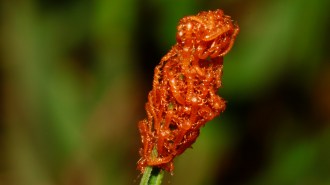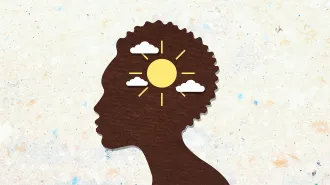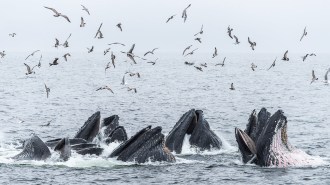Life
Colorful duck bills hint at sperm quality, plus dangerous jellies and throwback bees in this week’s news
Antimicrobial semen
To find a mallard with superior bactericidal semen, look for the guy with the most colorful bill. Researchers investigating male finery in a range of species have suggested that ornaments may reveal useful information about a potential mate, such as the strength of his immune system. In a new twist, mallard semen itself, especially from some males, has shown the ability to trounce
E. coli
and other bacteria in lab tests. Female mallards do fancy a colorful bill, so evolution may have favored preferences that reduce the risk of sexually transmitted infections or of bacterially damaged sperm, researchers say in an upcoming
Biology Letters
. —
Susan Milius
Jellyfish slay salmon
In a contest between jellyfish and salmon, bet on the jellyfish. The moon jellyfish,
Aurelia aurita
, can inflict serious damage to Atlantic salmon by corroding the fishes’ gills and inducing hemorrhaging even after short-term exposure, researchers report April 7 in
PLoS ONE
. Scientists from the University of Cork and Vet-Aqua International in Ireland decided to investigate the relationship between jellies and sick salmon after many reports of jellyfish blooms messing up aquaculture operations. The finding is especially disturbing because the pontoons used in aquaculture seem to be good living quarters for very young jellies. —
Rachel Ehrenberg
Vintage bees
Two modern-day bug groups are “living fossils” descended from some of the first bees, says a team of international researchers. Most megachilid bees — the second largest bee family — coat the insides of their nests with leaves or sawdust to keep things dry. But similar to their wasp progenitors, bees belonging to the genera
Fidelia
and
Neofidelia
don’t, the team reports online April 13 in the
Proceedings of the Royal Society B
. Weatherproofing gave bees the chance to colonize soggy habitats, while these two groups of olden-day bees don’t leave the desert. —
Daniel Strain







